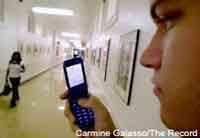 Handy… Literally!
Handy… Literally!
Engadget has a story on how Montclair State University in New Jersey is handing out free phones to it’s students to enable them to easier communicate with each other. The handsets feature software which allows them to receive “channels” of information, which users sign up for. These channels include things like the dinner menu and the location of the university’s shuttle buses, as well as channels students have set up of their own.
I can admit I am actually kind of jealous of this: I would love the ability to be able to do this at school, checking up on when holidays are, what’s on the menu, and what my time-table’s like. Sadly, I think my school would have some difficulty in preventing the chavs from selling them on eBay, which of course is an entirely different issue.
This is the problem with technology like this: Those most likely to adopt it are, by default, young people, who therefore can’t afford it. Give it to them instead then, and a select few will take advantage of that. Technology like this, for now, is only for older people I think. This isn’t to say it isn’t exciting though: I still find socio-technological implementations, usually referred to as MoSoSo (Mobile Social Software), fascinating, as although there isn’t yet much of a market for these sorts of services, there will inevitably be, and when there is, it could well change the way we communicate with each other forever.
 Sounds nasty!
Sounds nasty!
Everyone over here in Europe likes to text, or “txt” for short. I’m not entirely sure how popular the practice is over in the US, but in the UK it’s used mainly by teenagers, although others use it too, because of it’s extremely low cost in comparison to making voice calls.
The New York Times is reporting that apparently, using SPAMming techniques, it should be possible to flood a cities GSM infrastructure by sending as little as 165 text messages a second into the network. This is made possible because text messages use the same communications infrastructure and network that voice calls are made to as well. Imagine what could happen if someone flooded a network, so that no calls could be made, and then at the same time a co-ordinated terrorist attack occurred. People would be unable to call the emergency services, and wide-spread carnage and destruction would occur.
This is particularly scary for me, as I would be at a loss in an emergency without my phone: It’s central to how I find people and communicate with them, and when I really need to get in touch with them, I wouldn’t be able to. This reliance and taking for granted of technology is something that most of my generation are likely guilty of, and when everything does kick off and there’s no electricity, phones or water, I would have severe doubts that a lot of them would be able to cope with it.
It was only really recent events (London bombings) that brought this to my attention, but it has made me realise that reliance on technology could be very turned around and be used against us.
 That lot again
That lot again
Yes, that’s right, the RIAA are at it again: A short time ago, a case against a mother on her daughter’s behalf of file sharing was dismissed in court. Now, the RIAA are back, but this time, they’re not suing the mother but her 14-year old daughter.
People like the RIAA make me so, so angry: At 14, no-one really knows what they’re doing. So a little girl downloaded some of her favourite songs from the Internet. That little girl was probably a paying customer as well, but her pocket money just wasn’t enough, and she just wanted to hear one more song by her favourite artist, but couldn’t afford it. Her friend said “you can get it for free from here”, and so that’s what the girl did. Next thing she knew, the very company she was a customer of, was sending threatening letters to her, demanding thousands of dollars in compensation.
Is this the right way of treating your customers? I know for sure it is one great way of driving them away. If you are in my position at the moment, of having a good few thousand songs you enjoy, then stop buying music unless it is from your local bands or from an independent label. It might sound an unrealistic expectation, but I have found so many great bands on the Internet and locally at pubs and other music venues, that I am quite confident I will never be giving another penny to those greedy folks over at the RIAA.
You can do something about it though, by going to www.boycott-riaa.com. Every little helps!
That would be my rant for the day, have a nice weekend :-)
 Sony’s Playstation has been awarded an Emmy for Outstanding Achievement in Technology and Advanced New Media for pioneering the 3D polygonal-based gaming experience, by the US National Academy of Television Arts and Sciences (NATAS).
Sony’s Playstation has been awarded an Emmy for Outstanding Achievement in Technology and Advanced New Media for pioneering the 3D polygonal-based gaming experience, by the US National Academy of Television Arts and Sciences (NATAS). You can imagine that the awarding of this will make steam come out of the ears of those on the Xbox team at Microsoft
You can imagine that the awarding of this will make steam come out of the ears of those on the Xbox team at Microsoft Is it only the cynical that would think that the timing of this award has anything to do with the wider entertainment business (read film) getting more closely involved with creation of film license games? Or even that they’ve finally woken up to the fact that the amount of money spent on video games out-sizes that spent on film.
Is it only the cynical that would think that the timing of this award has anything to do with the wider entertainment business (read film) getting more closely involved with creation of film license games? Or even that they’ve finally woken up to the fact that the amount of money spent on video games out-sizes that spent on film.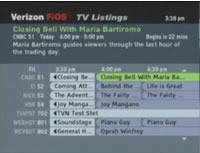 Verizon has launched an IPTV service in Keller, Texas delivered over their fiber-to-the-premises network.
Verizon has launched an IPTV service in Keller, Texas delivered over their fiber-to-the-premises network. Verizon are offers three set-top boxes: standard definition for $3.95/month; HD for $9.95/month; and a digital video recorder set-top box with HD channels for $12.95 permonth. Content packages between $13/month – $40/month are layer on top of this.
Verizon are offers three set-top boxes: standard definition for $3.95/month; HD for $9.95/month; and a digital video recorder set-top box with HD channels for $12.95 permonth. Content packages between $13/month – $40/month are layer on top of this.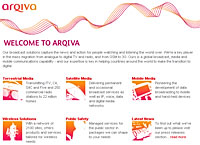 UK operator O2 has announced a mobile TV pilot letting 400 customers in Oxford to choose from 16 channels, featuring popular shows such as Lost, EastEnders, Coronation Street
UK operator O2 has announced a mobile TV pilot letting 400 customers in Oxford to choose from 16 channels, featuring popular shows such as Lost, EastEnders, Coronation Street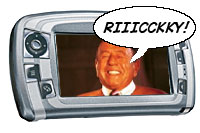 O2’s chief technology officer, Dave Williams, feels that the trial will help in establishing a model for more projects in the future, commenting. “By establishing relationships through activities such as this, we hope that potential challenges will be minimised and mobile TV becomes a commercial reality sooner than is currently possible.”
O2’s chief technology officer, Dave Williams, feels that the trial will help in establishing a model for more projects in the future, commenting. “By establishing relationships through activities such as this, we hope that potential challenges will be minimised and mobile TV becomes a commercial reality sooner than is currently possible.”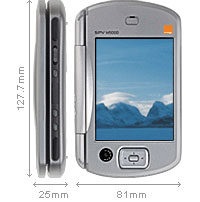 Orange has become the first UK operator to sell an own-brand Windows Mobile handset operating on 3G networks, with the launch of the SPV M5000 smartphone.
Orange has become the first UK operator to sell an own-brand Windows Mobile handset operating on 3G networks, with the launch of the SPV M5000 smartphone.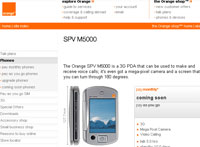 The silvery device stuffs in a loudspeaker and microphone for making conference calls, with a built-in modem and fax capability letting users blast off emails and check their appointments whilst making calls on the hands-free kit.
The silvery device stuffs in a loudspeaker and microphone for making conference calls, with a built-in modem and fax capability letting users blast off emails and check their appointments whilst making calls on the hands-free kit. Once again, the UK has grabbed the number one slot on Top Of The Bots, possessing the world’s highest proportion of known bot-infected computers.
Once again, the UK has grabbed the number one slot on Top Of The Bots, possessing the world’s highest proportion of known bot-infected computers. Symantec puts this down to the huge rise in broadband subscriptions coupled with the delays in software patches for operating systems and software being made available.
Symantec puts this down to the huge rise in broadband subscriptions coupled with the delays in software patches for operating systems and software being made available. The Times have covered Richard Freudenstein, COO of BSkyB, speech at the RTS Cambridge Convention
The Times have covered Richard Freudenstein, COO of BSkyB, speech at the RTS Cambridge Convention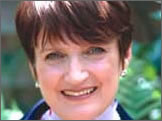 This regional order has been determined by a technical criteria determined by the broadcasters and Ofcom. The regional order will follow ITV regions. This ensures that the impact on ITV regional advertising markets is minimised.
This regional order has been determined by a technical criteria determined by the broadcasters and Ofcom. The regional order will follow ITV regions. This ensures that the impact on ITV regional advertising markets is minimised. Comment – It is interesting that London will be switched in 2012. Same year as we host the Olympics.
Comment – It is interesting that London will be switched in 2012. Same year as we host the Olympics.